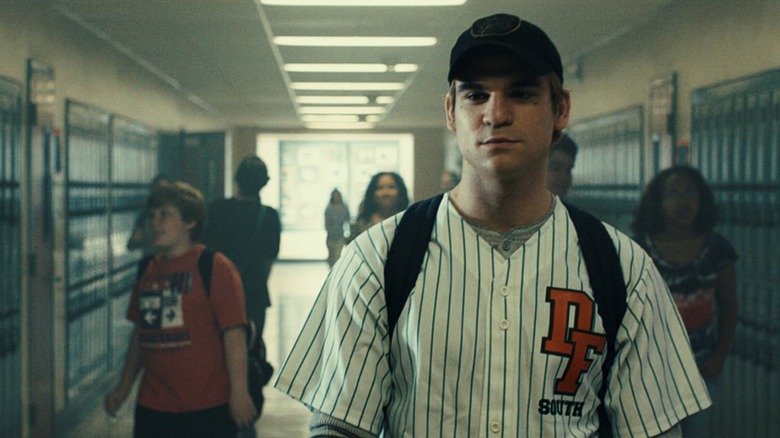The Daily Stream: The Imposter Tests The Limits Of The Phrase 'Stranger Than Fiction'
(Welcome to The Daily Stream, an ongoing series in which the /Film team shares what they've been watching, why it's worth checking out, and where you can stream it.)
The Movie: "The Imposter"
Where You Can Stream It: Peacock, Tubi, Kanopy
The Pitch: Bart Layton's gripping, endlessly twisty documentary tells the story of a family reunited, then unraveled. A Texas family whose son, Nicholas, had been missing for three years gets word that he's been found in Spain. Overjoyed, they bring him home, and he resumes his previous life. Only, Nicholas seems different — not just subdued by whatever trauma he's endured, but physically different. His skin is darker, his eye color doesn't seem right, and is that a French accent? We soon learn that this isn't Nicholas after all, but an adult con man named Frédéric Bourdin. And as it turns out, that's only the tip of the iceberg.
Why it's essential viewing
You'd be hard-pressed to meet anyone as spoiler-averse as I am, but it's a testament to "The Imposter" and the many surprises it presents that pretty much everyone I've ever met has heard me describe the entire plot of this movie. It's the kind of story that gets under your skin and leaks into your dreams. The fallout of Bourdin's acceptance into Nicholas' family is so much wider and weirder than anyone would expect, and the film's perfectly crafted narrative leads viewers exactly where it wants them to go. To say more about it would be to ruin one of the greatest tone shifts in modern documentary history, but it's worth noting that "The Imposter" counts its chameleonic central figure, Bourdin, among its interviewees.
Layton's documentary includes a typical mix of interviews and re-enactments, but it stands out among its contemporaries by hooking viewers early and often. The film gained acclaim after premiering at Sundance in 2012, but after enjoying a brief run on Netflix, it has since intermittently languished in non-streaming purgatory.
Despite being released years before Netflix got into the shock-a-minute documentary game, "The Imposter" feels like it would fit perfectly as a permanent fixture of the streamer's twist-heavy true crime genre efforts. If anything, though, it served as a sort of unofficial prototype for the type of modern documentary storytelling that saturates streaming today. No Netflix-produced true crime doc can garner gasps quite like "The Imposter."
"The Imposter" plays on the enduring myth of the changeling: A baby, taken by fairies in the night and replaced by a near-identical interloper. The fear of losing something as precious as a child isn't a particularly repressed one — the 24-hour news cycle makes sure parents think about it every day — but the fear of losing some part of your child and not being able to tell is perhaps not as openly discussed. The story told in "The Imposter" has been told before and since, in movies like Julia Ducournau's surprisingly warm body horror fable "Titane," Clint Eastwood's Angelina Jolie-led historical drama "Changeling," and the real-life story of Bobby Dunbar.
More focused on getting its wild story across than in making any sense of it, "The Imposter" calls to mind the changeling myth but then side-steps it for something even weirder. In a genre that seems to pride itself on oneupmanship, the now decade-old shocker "The Imposter" remains a seminal "WTF" documentary in a sea of, well, imitators.

